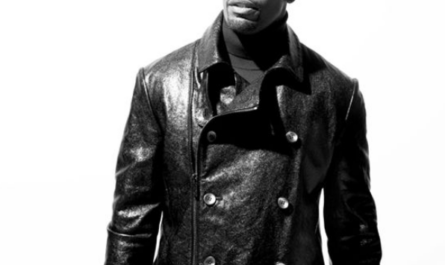1. Nikola Tesla in “The Prestige” (2006)
Background: Nikola Tesla, a real-life inventor and electrical engineer, is brought to life by Hugh Jackman in Christopher Nolan’s “The Prestige.” The film explores the intense rivalry between two magicians, Robert Angier (Jackman) and Alfred Borden (Christian Bale), and delves into the world of illusion, science, and sacrifice.
Intellectual Prowess: In the film, Tesla’s brilliance is evident in his pioneering work in electromagnetism and the development of advanced technology. His character is depicted as eccentric yet visionary, challenging the established norms of his time. Tesla’s inventions, including the mysterious machine he creates for Angier, showcase his deep understanding of science and his commitment to pushing the boundaries of what is possible.
Key Scenes:
- The unveiling of Tesla’s machine, a moment of anticipation and wonder that highlights the character’s ingenuity.
- Tesla’s interactions with Angier, providing glimpses into his unconventional thinking and commitment to his scientific pursuits.
Significance: While Tesla is a supporting character in the film, his role is pivotal to the narrative. His intellectual contributions drive the plot, and Jackman’s portrayal captures the mystique and brilliance associated with the historical figure.
2. Leopold Fitzwilliam in “The Fountain” (2006)
Background: “The Fountain,” directed by Darren Aronofsky, weaves together three parallel stories spanning different time periods. Hugh Jackman plays Tomas, a 16th-century Spanish conquistador, and Tommy Creo, a 21st-century scientist, among other incarnations. Leopold Fitzwilliam, a character within the narrative, is a manifestation of Jackman’s intellectual depth.
Intellectual Prowess: Leopold Fitzwilliam embodies intellectual prowess in his role as a conquistador. His strategic mind, evident in the way he navigates challenges and quests for immortality, showcases a keen intellect. The character also reflects the theme of intellectual exploration across different timelines, as seen through Tomas and Tommy Creo.
Key Scenes:
- Leopold’s interactions with Queen Isabella, where his intellectual and strategic abilities come to the forefront.
- The character’s quest for the Tree of Life, representing a journey fueled by knowledge and the pursuit of eternal life.
Significance: While “The Fountain” is known for its philosophical and metaphysical themes, Leopold’s character contributes to the exploration of intellectual and existential questions, adding layers to the narrative.
3. Robert Angier in “The Prestige” (2006)
Background: Robert Angier, portrayed by Hugh Jackman, is one of the central characters in “The Prestige.” As a magician consumed by rivalry and obsession, Angier’s character undergoes a transformative journey that involves intellectual pursuits and strategic planning.
Intellectual Prowess: Angier’s intellectual strength lies in his meticulous planning and engineering skills as he seeks to outdo his rival, Alfred Borden. The character’s relentless pursuit of perfection and his ability to think several steps ahead contribute to his status as an intellectually gifted magician.
Key Scenes:
- Angier’s interactions with Tesla, highlighting his determination to utilize cutting-edge technology for his magic acts.
- The unfolding of Angier’s elaborate tricks, showcasing the intellectual depth required to execute such illusions.
Significance: Angier’s character exemplifies the intersection of intellect and obsession, driving the narrative forward and challenging traditional notions of magic and illusion.
4. Charles Xavier in the “X-Men” franchise (2000-2017)
Background: Professor Charles Xavier, also known as Professor X, is a mutant with telepathic abilities and the founder of the X-Men. Hugh Jackman portrays the character in multiple films within the “X-Men” franchise.
Intellectual Prowess: Professor X is not only a powerful telepath but also a brilliant geneticist and strategist. His intellectual contributions extend beyond his psychic abilities, as he guides and mentors mutants, develops technology to assist them, and navigates the complex dynamics between mutants and humans.
Key Scenes:
- Professor X’s interactions with mutants, where his intellectual guidance becomes evident.
- The creation of Cerebro, a device designed to locate mutants worldwide, showcasing his technological expertise.
Significance: Professor X’s character is crucial to the “X-Men” franchise, representing the intellectual and moral compass for mutants. Jackman’s portrayal captures the wisdom and intellectual depth associated with the iconic character.
5. Van Helsing in “Van Helsing” (2004)
Background: Gabriel Van Helsing, portrayed by Hugh Jackman, is a monster hunter in Stephen Sommers’ “Van Helsing.” The character is tasked with battling supernatural creatures, including Dracula, werewolves, and Frankenstein’s monster.
Intellectual Prowess: Van Helsing’s character goes beyond physical strength, showcasing intellectual depth through his vast knowledge of mythology, theology, and the occult. Fluent in multiple languages, Van Helsing employs his intellect to strategize and combat supernatural threats.
Key Scenes:
- Van Helsing’s interactions with other characters, revealing his linguistic and intellectual versatility.
- The character’s strategic approach to battling different supernatural creatures, highlighting his intellectual adaptability.
Significance: While known for its action and horror elements, “Van Helsing” positions the character as more than just a brawler, emphasizing his intellectual contributions to the fight against evil.
6. Logan/Wolverine in the “X-Men” franchise (2000-2017)
Background: Logan, also known as Wolverine, is a mutant with accelerated healing and retractable adamantium claws. Hugh Jackman’s portrayal of Wolverine spans multiple films in the “X-Men” franchise.
Intellectual Prowess: While Wolverine is primarily recognized for his physical abilities and berserker rage, his character possesses intellectual depth honed through centuries of experience. Wolverine is a skilled tactician, adept at reading people and situations, and surprises with his wit and dry humor.
Key Scenes:
- Wolverine’s interactions with other mutants, showcasing his ability to navigate complex relationships.
- The character’s strategic approach to battles, utilizing his intellect alongside his physical prowess.
Significance: Wolverine’s character demonstrates a balance between raw physicality and intellectual acuity, contributing to the complexity of his portrayal in the “X-Men” series.
7. Michael Faraday in “The Prestige” (2006)
Background: Michael Faraday, the real-life physicist and chemist, is portrayed by Hugh Jackman in “The Prestige.” While not a central character, Faraday’s contributions to the understanding of electricity are integral to the plot.
Intellectual Prowess: Faraday’s character represents intellectual depth in the realm of science, specifically electricity. His experiments and contributions to the field highlight the character’s commitment to advancing scientific knowledge.
Key Scenes:
- Faraday’s involvement in the narrative, connecting the historical context to the fictional rivalry between magicians.
Significance: Faraday’s inclusion in the film adds a layer of historical and scientific authenticity, emphasizing the intersection of real-world intellect with the fictional narrative.
8. Keller Dover in “Prisoners” (2013)
Background: Keller Dover, portrayed by Hugh Jackman, is a desperate father searching for his missing daughter in Denis Villeneuve’s “Prisoners.”
Intellectual Prowess: While not a traditional intellectual character, Dover showcases a different form of intellectual prowess. His determination, resourcefulness, and ability to think outside the box make him a formidable force in his quest for justice.
Key Scenes:
- Dover’s interactions with other characters, revealing his determination and strategic thinking.
- The character’s unconventional methods in the search for his daughter, showcasing his intellectual adaptability.
Significance: “Prisoners” adds a layer of intellectual complexity to Jackman’s repertoire, demonstrating the actor’s ability to portray characters driven by unconventional intellect and determination.
9. Jackson Briggs in “Real Steel” (2011)
Background: Jackson Briggs, portrayed by Hugh Jackman, is a former boxer turned robot boxing trainer in Shawn Levy’s “Real Steel.”
Intellectual Prowess: While not a traditional intellectual, Briggs demonstrates intelligence in his understanding of robotics and his ability to adapt and strategize in the world of robot boxing. His background as a former boxer adds a layer of strategic thinking to his character.
Key Scenes:
- Briggs’ interactions with robot fighters, showcasing his tactical approach to training.
- The character’s adaptability in navigating the challenges of robot boxing.
Significance: “Real Steel” provides a different lens through which to explore Jackman’s intellectual versatility, portraying a character whose intelligence is grounded in the world of sports and technology.
10. Charlie Kenton in “The Greatest Showman” (2017)
Background: Charlie Kenton, the ringmaster of P.T. Barnum’s circus, is portrayed by Hugh Jackman in “The Greatest Showman.”
Intellectual Prowess: While not a scientific genius, Kenton possesses a sharp business mind and a keen understanding of human psychology. His charisma and showmanship contribute to the creation of a spectacle that appeals to the masses.
Key Scenes:
- Kenton’s interactions with performers and the public, showcasing his ability to create a captivating show.
- The character’s strategic decisions in managing the circus, highlighting his business acumen.
Significance: “The Greatest Showman” presents Jackman in a role where intellectual depth is expressed through entrepreneurial and showmanship skills, adding a different dimension to his performances.
Conclusion: A Spectrum of Intellect
In conclusion, Hugh Jackman’s filmography is a testament to his ability to portray characters with a wide range of intellectual capacities. From real historical figures like Nikola Tesla and Michael Faraday to fictional characters like Professor X and Van Helsing, Jackman navigates a spectrum of intellect, adding layers of depth to each portrayal.
The ranking presented here is subjective and acknowledges the diverse forms of intelligence portrayed by Jackman’s characters. Whether through scientific brilliance, strategic thinking, or unconventional problem-solving, Jackman’s performances showcase a rich tapestry of intellect that enhances the storytelling experience.
As audiences continue to appreciate Jackman’s contributions to cinema, the actor’s versatility and talent remain evident in the multifaceted characters he brings to life. Whether in roles rooted in history, fantasy, or reality, Hugh Jackman’s portrayal of intellectually gifted characters continues to captivate and engage audiences worldwide.



